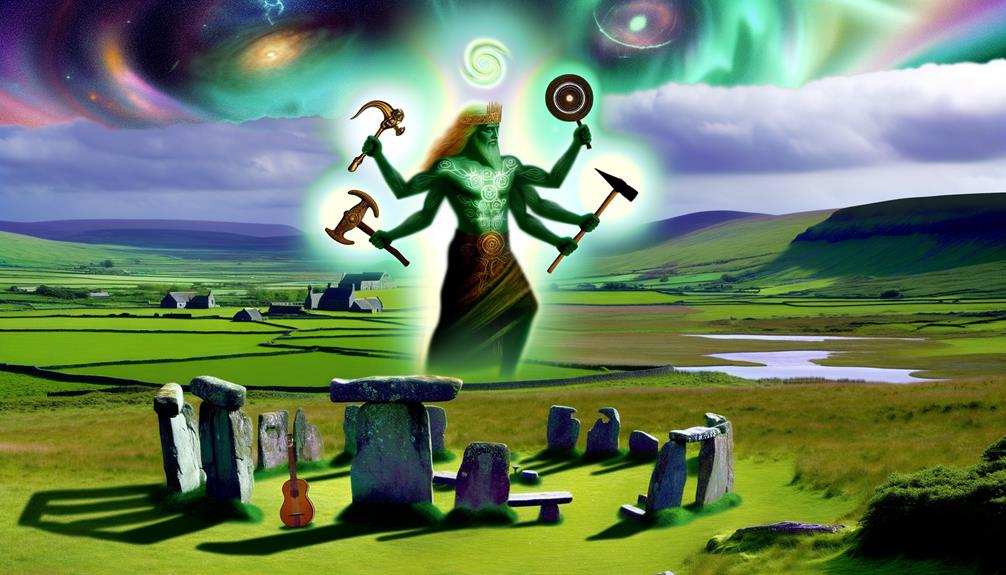Have you ever heard the legendary story of the Battle of Magh Tuireadh? If you're into Irish mythology, you might know about Lugh Lamhfada, famously referred to as the Master of Skills. This guy, Lugh, was the one who led the Tuatha Dé Danann to a triumphant win against the tough-as-nails Fomorians. Now, if you're someone who loves learning about different things, you might find Lugh's areas of expertise pretty interesting. He was a whiz in everything from warfare and law enforcement, to crafting items and doing business. And don't let his 'long arm' descriptor fool you – it's not just about his physical appearance. It represents his widespread influence and the vastness of his skills. But here's the million-dollar question: How did Lugh become so skilled in so many areas, and what can we learn from him? To get to the bottom of this, we need to dig deeper into Lugh's story and understand how his skills were viewed in the context of Celtic mythology.
Lugh's Multifarious Skills
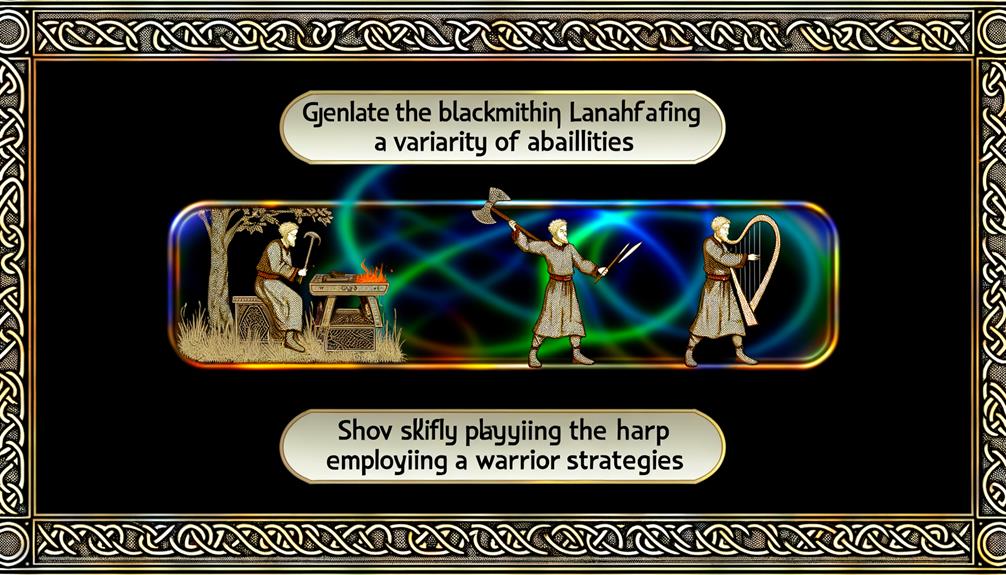
Let's talk about Lugh, a figure who was quite the jack-of-all-trades in the world of the Tuatha Dé Danann. This guy was amazing at everything from arts and crafts to poetry, fighting, and even magic! Lugh was quite the standout character in Celtic mythology, being a specialist in so many areas. Known as Lugh of the Long, he was, in essence, a superstar of skills.
But Lugh's talents weren't just about the physical or tangible stuff. He was also a respected magician, which showed his strength in the more mysterious, spiritual side of things. On top of all that, Lugh was a great leader. He guided the Tuatha De Danann to win battles, proving he could use his skills not just for his own benefit but also for strategic planning in war.
Weapons and Familiars of Lugh
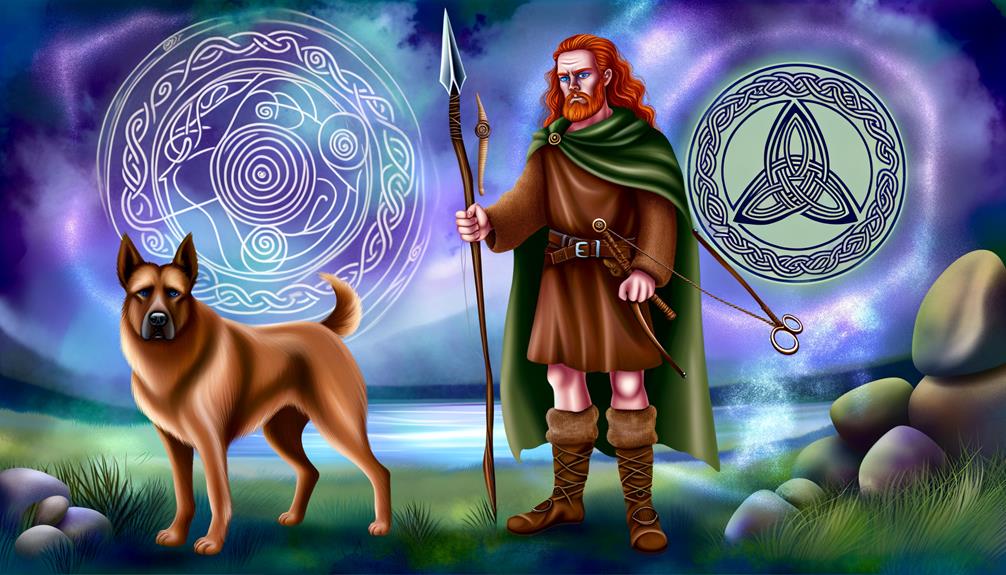
If we shift our focus towards Lugh's weapons and companions, it becomes clear that his expertise was not only in his abilities but also involved his distinctive artifacts and associates. In the tales of Irish mythology, Lugh Lamhfada, the deity Lugh, held the title of Chief Ollam and was known as a master of numerous talents.
- His Spear of Assal was more than a mere weapon but a testament to his invincibility, having the power to morph into lightning when thrown.
- The cloich tabaill, Lugh's slingshot, played a crucial role in his triumph over Balor in the pivotal battle of the Ulster Cycle.
- Fragarach, his sword, was famous for its ability to force truthfulness from the ones it was aimed at, adding to Lugh's strategic genius.
All these tools and companions aided in elevating Lugh's abilities, earning him respect and admiration in the legends of Irish mythology.
Lugh's Significant Battles
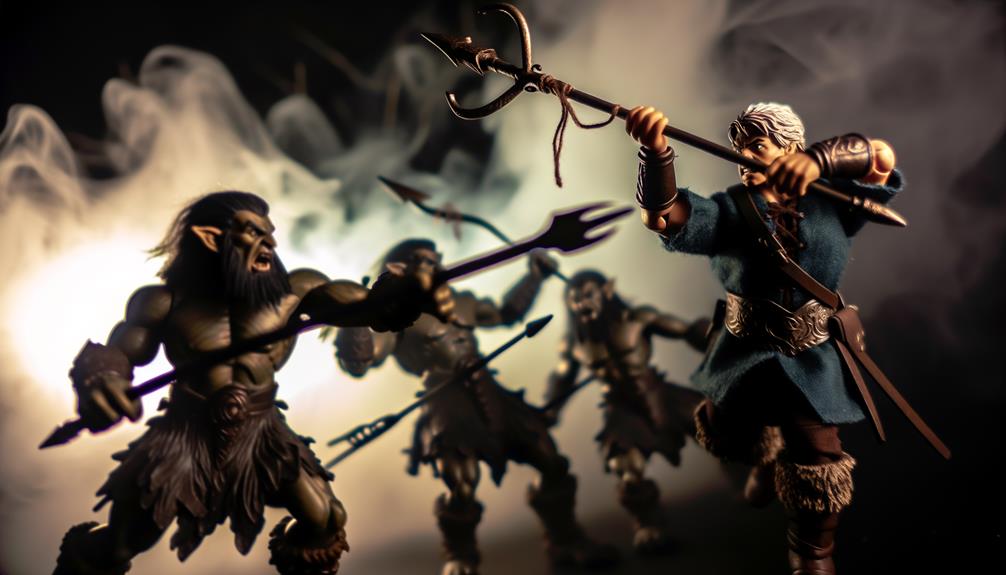
Let's take a closer look at Lugh's impressive battles, where his tactical mind and combat skills really came into their own. In the Battle of Mag Tuired, he was the leader of the Tuatha Dé Danann against the Fomorians. His strength and wisdom made him a formidable opponent. His most notable encounter was with King Balor, a character who is synonymous with terror in Celtic Mythology. Lugh defeated him with a single sling-stone, securing a decisive win. This battle was a true testament to his leadership and strategic thinking. An interesting point to note is that Lugh chose to show mercy to Bres, the previous king of the Tuatha Dé Danann, showing his nuanced approach to victory. The battles that Lugh fought paint a picture of a god who is not just powerful, but also a master strategist. This made him a revered figure in the Second Battle of Mag and more.
Legacy and Modern Interpretations
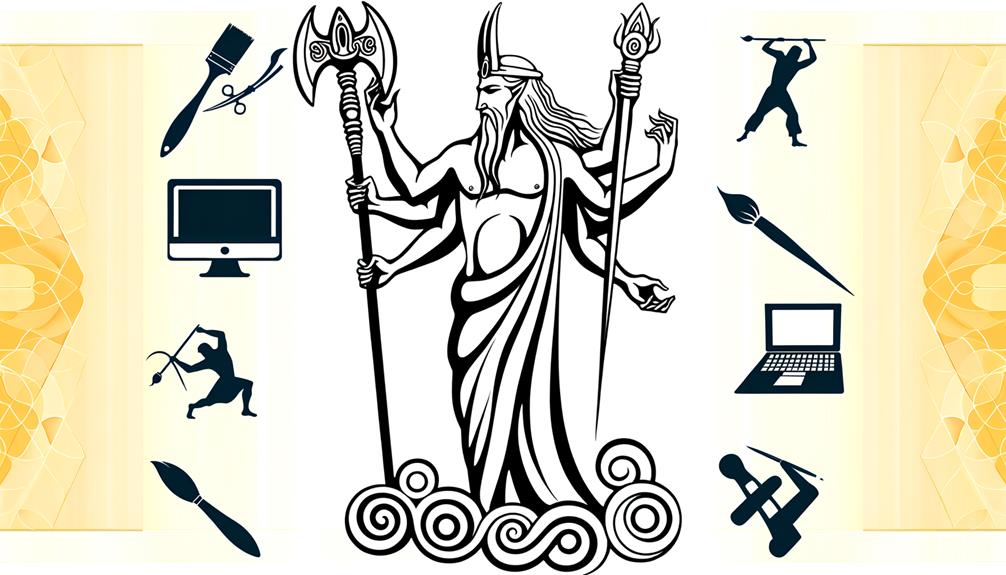
When we talk about the enduring legacy of Lugh, the fascinating part is how his story has found its way into current interpretations. From the Lughnasadh festival to his link with many European place names, from his representations in different cultural, religious, and artistic areas, his impact is significant. His influence is not just limited to Irish history but has found its way into popular culture as well.
Here's how we see Lugh's legacy and modern interpretations:
- The Lughnasadh harvest festival pays homage to Lugh's foster-father with horse races, highlighting his link to the sun god.
- He shares a close resemblance with the Gaulish Mercury, exhibiting the traits of a trickster, a warrior, and a king.
- His persistent presence in literature and art, as brought out by several University Press.
References and Further Reading
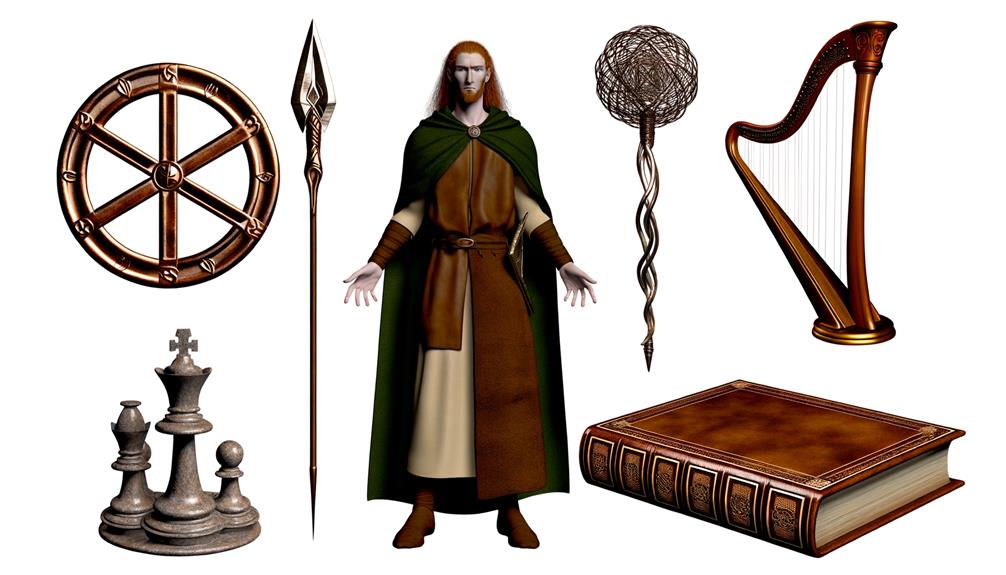
If you're eager to gain a deeper understanding of Lugh Lamhfada, take a look at these scholarly works. They shed light on his character, his influence on the Battle of Moytura, and his role as the god Lugus in an engaging and comprehensive way.
Check out these titles:
'Lugh – Celtic God and Cultural Hero' by Peter Berresford Ellis, which focuses on Lugh's heroism.
'Lugh: The Celtic God of Many Skills' by Miranda Green, a work dedicated to exploring Lugh's skills.
'Celtic Mythology: Tales of Gods, Goddesses, and Heroes' also by Peter Berresford Ellis, a book covering Celtic mythology as a whole.
These books also examine Lugh's ties with the Tuatha Dé Danann, the god of the sea, king Nuada, Cian and Ethniu, as well as his grand face-off with Balor of the Fomorians.
Keep in mind that immersing oneself in such literature is not just about gaining knowledge, but it's also about understanding the cultural and historical significance of these mythological figures. This will give you a broader perspective of Celtic mythology and its impact on society, both then and now.
Frequently Asked Questions
What Was Lugh the God Of?
So, you're curious about Lugh? Well, he's a big deal in Irish mythology. Known as the god of justice, war, kingship, craftsmen, skills, trade, and harvests, Lugh is all about being a master in various fields. It's like he has a hand in everything!
Who Is the Celtic God of Skills?
So, you're curious about the Celtic deity associated with skills? That's a great question! Let's chat about Lugh Lamhfada. This is a character who holds a significant place in Irish mythology, and for good reason. Lugh Lamhfada is celebrated for his exceptional proficiency in a variety of fields. This makes him a symbol of flexibility and the ability to adapt, traits many of us strive for.
Why Does Lugh Have Three Faces?
So, you're wondering about the three faces of Lugh, right? These three faces aren't just for show – they carry a deep symbolism. Each one stands for a different aspect of Lugh's capabilities as a god. One face shows his expertise in crafts, another his prowess in battle, and the last one his profound wisdom. This three-faced portrayal paints a picture of Lugh as a god with a wide range of skills and talents.
What Does the Name Lugh Mean in Irish?
The Irish name Lugh is often tied to the ideas of promises and the sun. It comes from the ancient root 'lewgh', which suggests a commitment made through a pledge. This name brings to mind associations with fairness, conflict, and skilled work.

